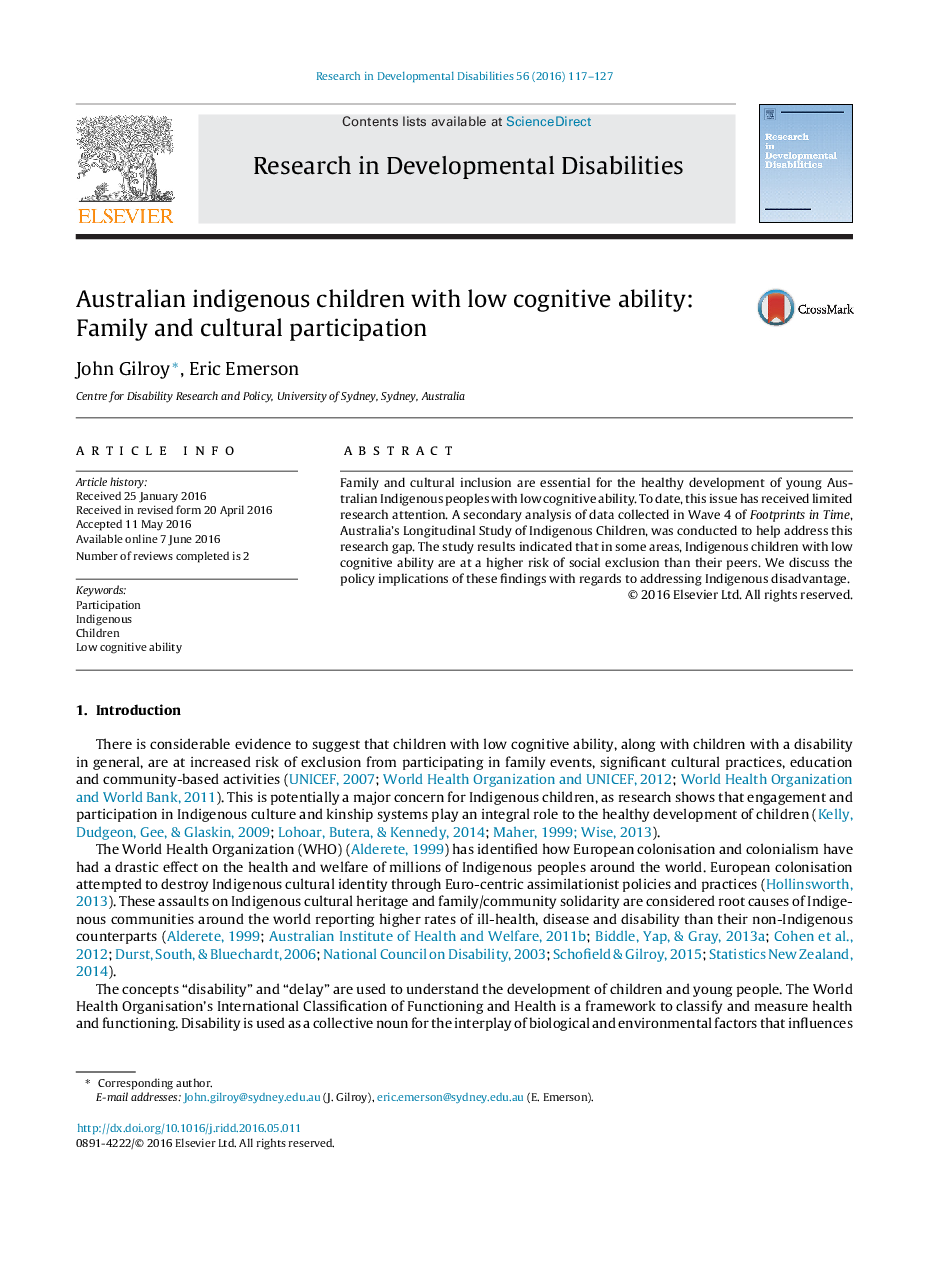| کد مقاله | کد نشریه | سال انتشار | مقاله انگلیسی | نسخه تمام متن |
|---|---|---|---|---|
| 371029 | 621894 | 2016 | 11 صفحه PDF | دانلود رایگان |
• Older, but not younger, Indigenous children with low cognitive ability were less likely to participate in family activities and cultural practices.
• In the majority of comparisons these differences were not statistically significant, and the effect sizes were small.
• The results lend tentative support to our hypotheses that Indigenous children with low cognitive ability would be at increased risk of social exclusion.
Family and cultural inclusion are essential for the healthy development of young Australian Indigenous peoples with low cognitive ability. To date, this issue has received limited research attention. A secondary analysis of data collected in Wave 4 of Footprints in Time, Australia’s Longitudinal Study of Indigenous Children, was conducted to help address this research gap. The study results indicated that in some areas, Indigenous children with low cognitive ability are at a higher risk of social exclusion than their peers. We discuss the policy implications of these findings with regards to addressing Indigenous disadvantage.
Journal: Research in Developmental Disabilities - Volume 56, September 2016, Pages 117–127
